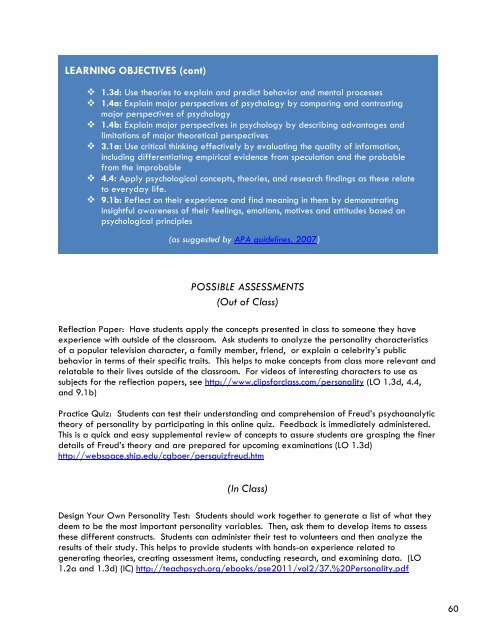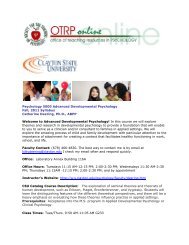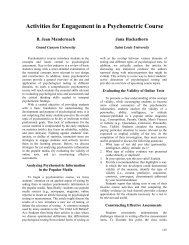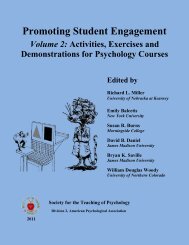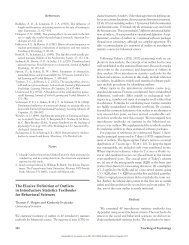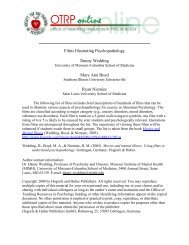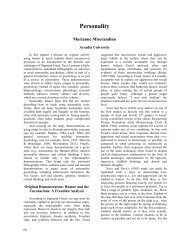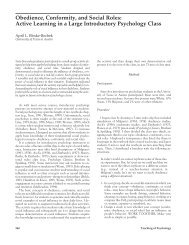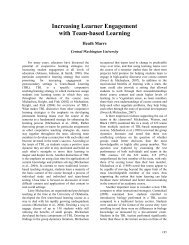INTRODUCTORY PSYCHOLOGY TEACHING PRIMER Early Career ...
INTRODUCTORY PSYCHOLOGY TEACHING PRIMER Early Career ...
INTRODUCTORY PSYCHOLOGY TEACHING PRIMER Early Career ...
You also want an ePaper? Increase the reach of your titles
YUMPU automatically turns print PDFs into web optimized ePapers that Google loves.
LEARNING OBJECTIVES (cont)<br />
1.3d: Use theories to explain and predict behavior and mental processes<br />
1.4a: Explain major perspectives of psychology by comparing and contrasting<br />
major perspectives of psychology<br />
1.4b: Explain major perspectives in psychology by describing advantages and<br />
limitations of major theoretical perspectives<br />
3.1a: Use critical thinking effectively by evaluating the quality of information,<br />
including differentiating empirical evidence from speculation and the probable<br />
from the improbable<br />
4.4: Apply psychological concepts, theories, and research findings as these relate<br />
to everyday life.<br />
9.1b: Reflect on their experience and find meaning in them by demonstrating<br />
insightful awareness of their feelings, emotions, motives and attitudes based on<br />
psychological principles<br />
(as suggested by APA guidelines, 2007)<br />
POSSIBLE ASSESSMENTS<br />
(Out of Class)<br />
Reflection Paper: Have students apply the concepts presented in class to someone they have<br />
experience with outside of the classroom. Ask students to analyze the personality characteristics<br />
of a popular television character, a family member, friend, or explain a celebrity’s public<br />
behavior in terms of their specific traits. This helps to make concepts from class more relevant and<br />
relatable to their lives outside of the classroom. For videos of interesting characters to use as<br />
subjects for the reflection papers, see http://www.clipsforclass.com/personality (LO 1.3d, 4.4,<br />
and 9.1b)<br />
Practice Quiz: Students can test their understanding and comprehension of Freud’s psychoanalytic<br />
theory of personality by participating in this online quiz. Feedback is immediately administered.<br />
This is a quick and easy supplemental review of concepts to assure students are grasping the finer<br />
details of Freud’s theory and are prepared for upcoming examinations (LO 1.3d)<br />
http://webspace.ship.edu/cgboer/persquizfreud.htm<br />
(In Class)<br />
Design Your Own Personality Test: Students should work together to generate a list of what they<br />
deem to be the most important personality variables. Then, ask them to develop items to assess<br />
these different constructs. Students can administer their test to volunteers and then analyze the<br />
results of their study. This helps to provide students with hands-on experience related to<br />
generating theories, creating assessment items, conducting research, and examining data. (LO<br />
1.2a and 1.3d) (IC) http://teachpsych.org/ebooks/pse2011/vol2/37.%20Personality.pdf<br />
60


